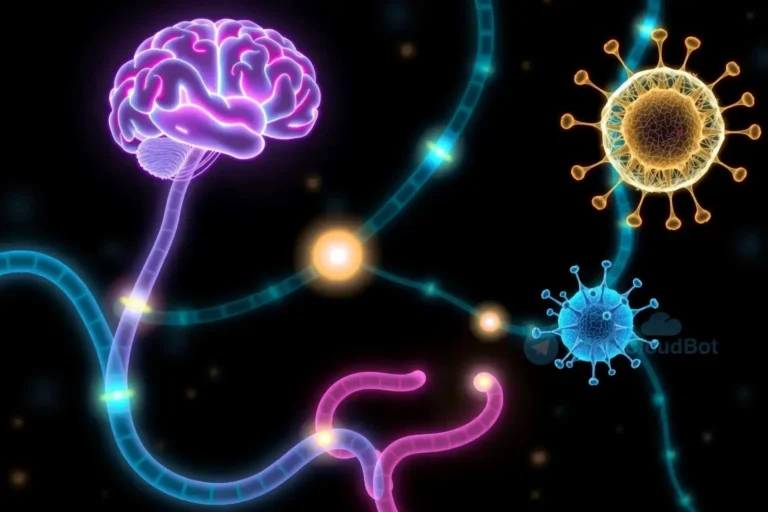Microbes and Mood: The Influence of Gut Bacteria on Mental Wellbeing
The Gut-Brain Axis: A Two-Way Street
The gut and brain are in constant communication, a dynamic relationship termed the “gut-brain axis․” This intricate network involves nerve pathways, hormones, and the immune system․ Signals from the gut travel to the brain, influencing mood and behavior․ Conversely, the brain can impact gut function, as seen with stress-induced digestive upset․ This bidirectional communication highlights the interconnectedness of our mental and digestive health․ Understanding this complex interplay is key to managing stress and overall wellbeing․
The Stress-Microbe Connection: How Stress Impacts Gut Flora
Stress, a ubiquitous presence in modern life, exerts a profound influence on our bodies, extending beyond the immediately perceptible symptoms of tension and anxiety․ One crucial yet often overlooked impact of stress lies within our gut, specifically affecting the delicate balance of our gut microbiota․ This complex community of microorganisms, residing within our digestive tract, plays a vital role in various physiological processes, from digestion and nutrient absorption to immune function and even mental well-being․ Stress, however, can disrupt this delicate ecosystem, leading to a cascade of effects that can negatively impact our overall health․
When we experience stress, our bodies initiate a complex physiological response, commonly known as the “fight-or-flight” response․ This response involves the release of various hormones, including cortisol, often referred to as the “stress hormone․” While cortisol plays a crucial role in helping us cope with acute stressors, chronic elevation of cortisol levels, as seen in prolonged or chronic stress, can have detrimental effects on the gut microbiota․ Cortisol can alter the composition and diversity of gut bacteria, favoring the growth of harmful bacteria while suppressing the growth of beneficial ones․ This disruption of the microbial balance, known as dysbiosis, can contribute to a range of digestive issues, including inflammation, increased intestinal permeability (often referred to as “leaky gut”), and altered bowel movements․
Furthermore, stress can also impact gut motility, the rhythmic contractions that propel food through the digestive tract․ Stress can either accelerate or slow down gut motility, leading to symptoms such as diarrhea or constipation, respectively․ These changes in motility further contribute to the disruption of the gut microbial environment, exacerbating the effects of stress on gut health․
The impact of stress on the gut microbiota is not limited to direct effects on bacterial populations․ Stress can also influence the production of mucus in the gut, which serves as a protective barrier and a source of nourishment for beneficial bacteria․ Reduced mucus production, often observed during periods of stress, can compromise the integrity of the gut lining, making it more susceptible to inflammation and infection․ Additionally, stress can negatively impact the immune system, further weakening the gut’s defenses against harmful pathogens․ This intricate interplay between stress, gut microbiota, and the immune system highlights the importance of managing stress effectively to maintain a healthy gut and overall well-being․
The connection between our gut and our brain extends beyond just digestion; it plays a significant role in shaping our mental well-being; Emerging research reveals a fascinating interplay between the gut microbiota and the brain, influencing mood, behavior, and even cognitive function․ This bidirectional communication pathway, known as the gut-brain axis, highlights the surprising influence of these microscopic inhabitants on our mental landscape․
One of the key ways gut bacteria influence mood is through the production of neurotransmitters․ These chemical messengers, such as serotonin, dopamine, and GABA, play crucial roles in regulating mood, emotions, and sleep․ Remarkably, a significant portion of serotonin, often referred to as the “happy hormone,” is produced in the gut, not the brain․ Gut bacteria contribute to this production, influencing serotonin levels and potentially impacting mood regulation․ Disruptions in the gut microbiota, such as dysbiosis, can therefore have downstream effects on neurotransmitter production and potentially contribute to mood disorders like anxiety and depression․
Furthermore, gut bacteria influence the production of short-chain fatty acids (SCFAs), such as butyrate, propionate, and acetate․ These SCFAs are produced through the fermentation of dietary fiber by gut bacteria and have a range of beneficial effects on both gut and brain health․ SCFAs can strengthen the gut barrier, reduce inflammation, and even influence brain function by modulating neurotransmitter activity and gene expression․ These effects highlight the crucial role of a healthy and diverse gut microbiota in supporting mental well-being․
The gut-brain axis also involves the vagus nerve, a major communication pathway between the gut and the brain․ Gut bacteria can communicate with the brain via the vagus nerve, sending signals that influence brain activity and behavior․ Studies have shown that certain gut bacteria can activate the vagus nerve, leading to changes in brain activity associated with reduced anxiety and improved mood․ This intricate communication network underscores the complex interplay between gut microbes and mental health․
Finally, gut bacteria play a role in regulating inflammation throughout the body, including the brain․ Chronic inflammation is increasingly recognized as a contributing factor to various mental health disorders․ A healthy gut microbiota helps to maintain a balanced immune response and reduce inflammation, potentially protecting against mood disturbances and cognitive decline․ This complex interplay between gut microbes, the immune system, and the brain highlights the importance of nurturing a healthy gut microbiota for optimal mental well-being․
Harnessing the Power of Probiotics and Prebiotics for Stress Management
Given the profound impact of stress on gut health and the subsequent influence on our overall well-being, it’s crucial to explore strategies that can help mitigate these effects․ Probiotics and prebiotics, two key players in supporting gut health, offer promising avenues for managing stress and promoting a balanced gut microbiota․ Understanding the distinct roles of these gut-friendly agents can empower us to make informed choices for better stress management․
Probiotics are live microorganisms, primarily bacteria, that confer health benefits when consumed in adequate amounts․ They can be found in fermented foods like yogurt, kefir, and sauerkraut, as well as in dietary supplements․ Probiotics work by replenishing and diversifying the gut microbiota, helping to restore a healthy balance․ Specific probiotic strains have been shown to reduce stress hormones, improve mood, and even enhance cognitive function․ By introducing beneficial bacteria into the gut, probiotics can help counteract the negative effects of stress on the gut microbiota․
Prebiotics, on the other hand, are non-digestible food ingredients that selectively stimulate the growth and/or activity of beneficial bacteria already residing in the gut․ They act as “food” for probiotics, fostering a thriving gut ecosystem․ Prebiotics are found in various plant-based foods, including fruits, vegetables, and whole grains․ Consuming a diet rich in prebiotic fiber can help nourish the existing beneficial bacteria, promoting a healthy and resilient gut microbiota․ This, in turn, can help buffer against the disruptive effects of stress on the gut․
Incorporating both probiotics and prebiotics into your diet can create a synergistic effect, maximizing the benefits for gut health and stress management․ A balanced diet rich in fruits, vegetables, whole grains, and fermented foods can provide a natural source of both prebiotics and probiotics․ Alternatively, dietary supplements can offer a targeted approach to replenishing specific probiotic strains or increasing prebiotic intake․ Choosing the right probiotic strain is essential, as different strains exert different effects on the body․ Consulting with a healthcare professional or registered dietitian can provide personalized guidance on selecting the most appropriate probiotics and prebiotics for your individual needs․
Beyond probiotics and prebiotics, lifestyle modifications also play a crucial role in managing stress and supporting gut health․ Regular exercise, adequate sleep, mindfulness practices, and stress-reduction techniques can all contribute to a healthier gut microbiota and improved stress resilience․ By adopting a holistic approach that encompasses both dietary and lifestyle interventions, we can harness the power of the gut-brain axis to better manage stress and promote overall well-being․





